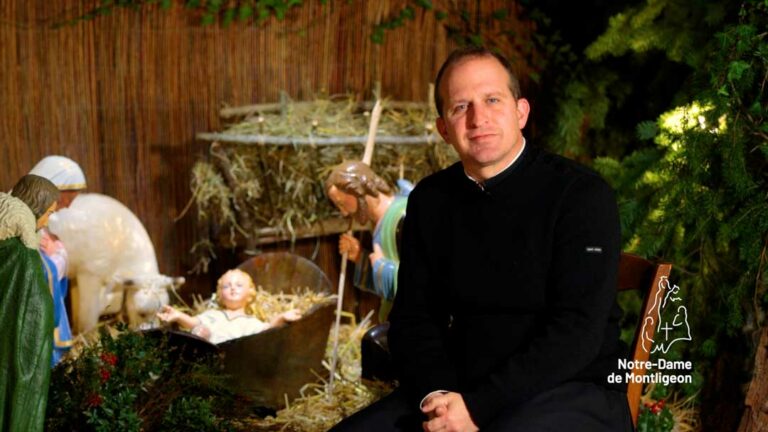The physical, sensitive bond with our loved-ones gets violently shattered when they die. When such destructive power hits, what then remains of our ties with the deceased? As she analyzes the nature of this bond, Sister Cécile gives some reasons for hope. Isn’t love is stronger than death?
What remains of our bond with our deceased?
As Saint Paul claims in the beautiful Hymn to Love, “love never ends”. Love is eternal, which is very comforting. The Canticle of Canticles also tells us that “Love is strong as death.” So we can be assured that this bond of love remains. On the other hand, it is a different experience. From being physical and sensitive, it becomes a spiritual journey.
Knowing that our love endures is very good news. It means that we can stay in touch with the deceased. But it does not involve any sort of communication. Indeed, when we are in mourning, we are weakened and we may be tempted to enter into actual communication with him or her via mediums or clairvoyants, in order to hear their voice. The Church warns us against such attempts. Communicating with our deceased might trigger occult powers beyond our control and open us up to serious problems. On the contrary, it teaches us that a spiritual communion with our deceased exists, through the communion of saints.
If the bonds of love remain, not only can they continue, but they can also be perfected.
Although hard to conceive, perfecting the bond we have with a deceased person is possible. Indeed, it is a two-way relationship. On the other hand, we often lose sight of the fact that our deceased had a spiritual experience that we on earth have not yet had: a face-to-face encounter with God. This has changed them radically.
Our deceased has met God, who is nothing but love: and their encounter with God’s love cannot leave them the way they were on earth. So, compared to us, our deceased are ahead of the curve in the art of loving. Isn’t is a very hopeful perspective?
How can we keep in touch with our deceased?
When we experience the severance of death, we often think it is all over. There was so much more we’d wanted to share with our loved-one, what can we do now? However, as wonderful as it may have been, the relationship may also have been damaged.
Whether the deceased is in loving communion with God, or has an extreme desire to be experience such closeness, he or she is in this positive attitude to love. Which means that I am able to actually talk to the person, tell them I love them or thank them. I can even say “goodbye” to them if I haven’t had the chance, depending on the circumstances. Even if my relationship has suffered some injuries, I can still access an extraordinary dimension of love: forgiveness.
Forgiving beyond death
Here at Montligeon, we often meet people who are unable to make progress in their mourning process because they need to experience forgiveness – whether given or received. This is where the mystery of the communion of saints and of the love that never dies comes into play: they empower us to make forgiveness happen beyond death.
How is that possible? Because we are bound by one common thread: the heart of Christ. The deceased are united in Christ’s presence. And we, too, share in God’s presence through the Eucharist and through faith and prayer in our life. I therefore believe that the very core of this bond of love with our deceased is enabled by the sacraments, in particular the Eucharist. In Eucharistic communion, this bond of love goes through the Eucharistic heart of Christ.
Sister Cécile interviewed for Radio Espérance.




